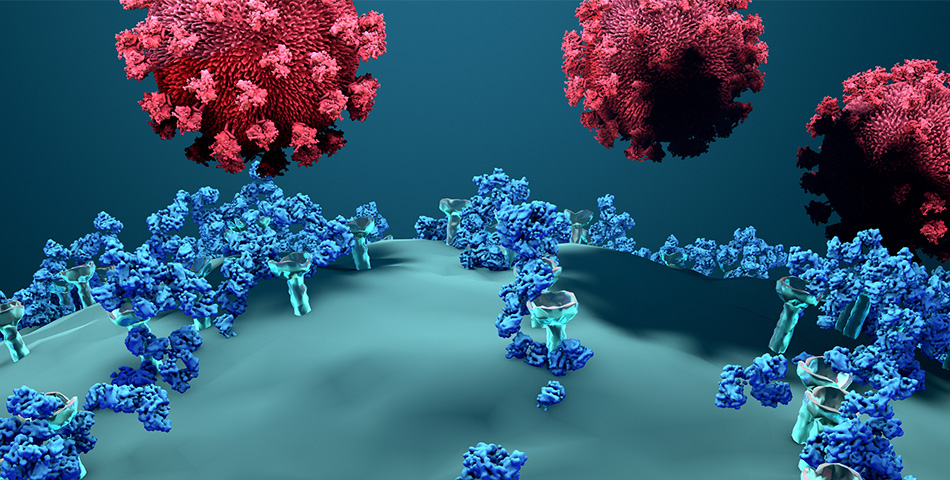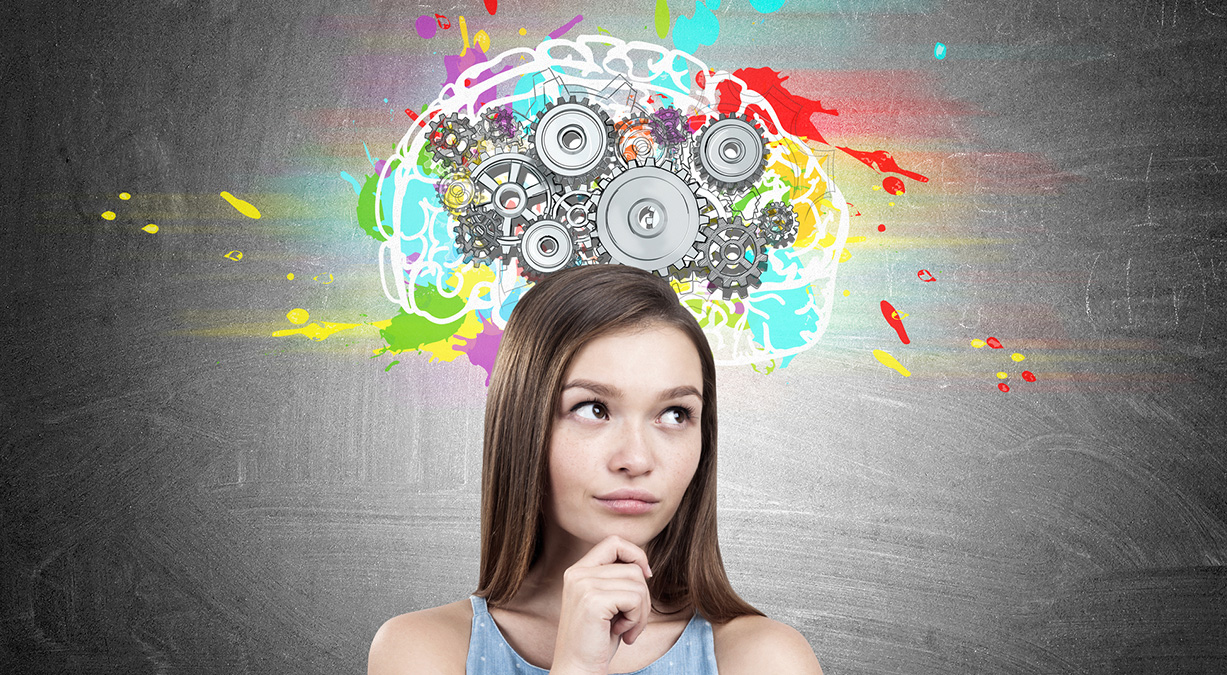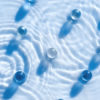CBD: research shows it’s an anti-inflammatory agent, anti-proliferant, and antioxidant.
Is there anything that cannabidiol can’t do?
Probably so, but here’s one more category that CBD seems to fit perfectly into: nootropic agent.
Nootropic (N): A substance (either natural or synthetic) that enhances cognition and memory and facilitates learning.
Commonly acknowledged nootropics include caffeine, vitamin B12, and Adderall (keep in mind that nootropics aren’t always conducive to overall wellness). But could it be time for this category to welcome CBD into the fold? The compound is a known neuroprotectant and neuroplastic agent, after all.
Diving deeper, there are actually five different qualifications that must be met for true nootropic agents. Set forth by Dr. Coreneliu Giurgea, the same man who brought us the term nootropic in the first place, candidates must:
- Enhance cognition, memory, and learning (that’s the definition from earlier)
- Aid brain function, even in challenging conditions
- Safeguard the brain from chemical assaults
- Increase the brain’s neuronal efficiency
- Come without appreciable side effects or toxicities
As you can see, the qualification list is pretty demanding. Few substances actually meet all of them!
But let’s hold CBD to them, just to see what happens. This is a time when the plant compound seems to be either (a) indiscriminately praised or (b) met with only skepticism and scrutiny, so maybe now would be a good opportunity to appraise CBD from a more objective middle ground.
In this article, we’ll be attempting to do just that. CBD will be graded according to each of Dr. Giurgea’s tenets, to see if it really measures up as a nootropic—or not.
Qualification #1: Does CBD enhance cognition, memory, and learning?
To answer succinctly: yes, yes and yes.
Keep in mind, though, that everything we mention here is merely a possibility. It may be a probable possibility, it may be backed by dozens of studies or thousands of customer experiences . . . but the tenuous legal environment surrounding CBD means we can’t make any definitive claims.
As always, we’re not saying that CBD can treat, cure, diagnose, or prevent any diseases, only that it may have certain beneficial qualities. Qualities that only keep getting better verified by science.
Speaking about science . . . here’s what one recent study said about CBD and cognition: “Prolonged CBD treatment appears to have promising therapeutic effects for improving psychological symptoms and cognition in regular cannabis users.”
Granted the study wasn’t done on your average CBD user—it was done on high-THC cannabis users! Still, the results were pretty impressive: the more dependent participants had become on THC, the stronger CBD’s restorative effects got.
And when it comes to CBD’s impact on memory, there’s more good news. The compound may improve both memory selection and recovery. That makes it an excellent choice for those with post-traumatic stress—and an excellent candidate for the title of nootropic, too.
What about learning? Once again, CBD seems to be of help. Studies have shown that it selectively facilitates learning, helping one’s brain to learn new patterns without being influenced by fear. The evidence suggests that CBD normally promotes factors that increase learning, factors like synaptic plasticity and the growth of new brain cells.
Qualification #2: Might CBD aid brain function, even among challenging conditions?
“Challenging conditions” refers to a fairly broad category, including things like oxidative stress, the effects of aging, and hyperstimulation. Thankfully, CBD is likely to improve brain function in the face of all of these, mostly by virtue of its antioxidant capabilities.
Let’s focus on the distinct challenge of hyperstimulation for now. After all, today’s high-tech life is full of distractions.
One user’s experience after only a week of CBD use was insightful: “I’ve found it easier to put my blinders on, block out all distractions (especially social distractions), and focus on one task at a time. I think this is partly related to the lessened anxiety.”
It probably is partly related to reduced anxiety . . . but that’s not the only mechanism at play here. CBD goes way deeper.
For example, Korean scientists may have been a little surprised in 2016 when they discovered CBD could promote brown fat formation. Brown fat (also called BAT) has been linked to all sorts of helpful outcomes, but basically it stabilizes one’s metabolism by promoting heat production.
What does this have to do with brain function? Potentially, a lot.
BAT formation has been linked to increased norepinephrine release and improved “glucose homeostasis.” Norepinephrine is a stimulatory hormone that energizes and increases focus; indeed, this hormone’s psychological effect is what makes the BAT-forming practice of cold showers so popular.
Improved glucose balance, on the other hand, probably makes getting your mind off food and onto the task at hand easier. Both high and low blood sugar definitely qualify as “challenging conditions”—and CBD users, including those with diabetes, have reported that it helps them with both.
The theoretical implications here are clear: CBD could help one’s body rely on highly stable fat sources for fuel, indirectly leading to better brain function in situations of any kind. Want to get through a busy, mentally demanding day? Take CBD!
Qualification #3: Could CBD safeguard the brain from chemical assaults?

Probably so. As we said earlier, research indicates that CBD has neuroprotective qualities.
And keep in mind the compound’s neuroprotective qualities are mostly a result of its antioxidant ones. After all, oxidation poses one of the biggest challenges to avoiding brain damage. Over decades and decades of living, the average person slowly succumbs to oxidative stressors that lead to forgetfulness, brain fog, and more.
But CBD might protect the brain from chemical imbalances, even those that stem from itself. According to a 2014 study,
“Patients suffering from Alzheimer’s disease (AD) exhibit a decline in cognitive abilities including an inability to recognise familiar faces [and] the aggregation of amyloid-β [plaque], tau protein hyperphosphorylation as well as pronounced neurodegeneration, neuroinflammation, neurotoxicity and oxidative damage.”
In other words, those with Alzheimer’s are experiencing neurological breakdown on a chemical level, much of it measurable on the chemical level. Thankfully, there’s good news:
“Cannabidiol (CBD) exerts neuroprotective, anti-oxidant and anti-inflammatory effects and promotes neurogenesis. CBD also reverses Aβ-induced spatial memory deficits in rodents.”
According to this study’s authors, CBD doesn’t just protect against neurochemical problems . . . it also reverses some of their most insidious effects, like amyloid plaque accumulation and the memory loss that comes with it.
As industry insider Hudson Gaines-Ross recently told Forbes, “CBD isn’t just for relief in the here and now . . . it’s an investment in your long-term brain health.”
CBD appears to protect the brain from other harmful and/or unpredictable substances, too. It may protect users against everything from THC to antipsychotic drugs, like clozapine, which may mess with dopamine levels. There’s a reason scientists view CBD as an antipsychotic agent.
Qualification #4: Does CBD increase the brain’s neuronal efficiency?
Could CBD actually help the brain function better, faster, and/or more efficiently?
Possibly . . . and the mechanism lies within something called retrograde signaling.
While it sounds a little exotic, retrograde signaling simply refers to the unique way in which cannabinoids of all types send messages.
In the brain and nervous system, most neurotransmitters (think serotonin, for example) send their messages in one direction. Signals propelled along by tiny electrical impulses flow from pre-synaptic to post-synaptic neurons—think of each neuron as a little satellite of sorts.
Ever thought about what keeps the speed and rhythm of these signals intact? Surely, something has to. And whatever this ‘something’ is would be very helpful to neural efficiency. Neuroscientists have been pondering such questions for decades, yet even they didn’t have an answer to the “what regulates everything?” question up until fairly recently.
Flashback to the late 90s, a time when leading researchers had just discovered the endocannabinoid system. As research progressed, they found that the endocannabinoids themselves didn’t behave like other molecules of their size. They weren’t propelled along by electricity—they traveled in reverse of it!
AKA, in a retrograde fashion. And that allowed them to closely ‘communicate’ with other neurotransmitters and make sure everything flowed smoothly as one unit.
The impact of endocannabinoids (eCB’s) on the brain’s efficiency is hard to measure, but looking at disease states with abnormal endocannabinoid signaling gives us some hints. We’re talking about the disease that helped bring CBD’s value to light: epilepsy.
In epilepsy, eCB’s basically fail to reign in other neurotransmitters, and the micro-scale ‘electric outages’ we recognize as seizures often result. Suffice to say that the effects of endocannabinoids on brain health are very, very important.
Qualification #5: Does CBD really come without appreciable side effects or toxicities?

Yes. By some estimates, you’d have to drink a whole 9 liters of CBD oil in order to actually ‘overdose’ on CBD! Considering that you’d overdose on water after about 7 liters, we think CBD sounds pretty safe. “CBD is generally well tolerated with a good safety profile,” according to the World Health Organization.
While toxicity is virtually impossible, CBD does have some mild side effects. These include dry mouth, nausea, headaches, drowsiness, and irritability. Yet most of these effects only occur when a person takes way too much CBD—or when their CBD is poor quality.
Properly dosed, CBD is almost always side-effect free. We think that’s sufficient for it to meet qualification #5, too.
CBD: A True Nootropic Agent
Based on even the strictest of guidelines, CBD really does seem to meet all the qualifications of nootropic.
If you want your CBD to take you even further, consider taking it alongside more established nootropics like ginseng or ashwagandha. We already know CBD becomes more effective alongside hemp’s other cannabinoids via the entourage effect . . . could it be that a yet-to-be-discovered multi-plant synergy exists, too?
The existence of such a synergy hasn’t been confirmed yet. But that hasn’t stopped people from trying out different combos—and frequently getting good results.
According to Nootropic manufacturer Mind Lab Pro, CBD “can also be paired with other nootropics for improved effectiveness. This practice of using different compounds together—known as stacking—is popular in the nootropic user community.”
Those who want an especially energizing mix can take CBD with another of modern life’s most popular nootropics: the caffeine + L-theanine duo that is coffee.
It’s true: CBD and coffee work very well together, and CBD may actually protect against the more deleterious effects of high caffeine consumption.
No wonder CBD-infused coffee has become such a trend. Like many of CBD’s applications, it’s still in the process of being backed by science . . . but based on how far cannabidiol has come in the last couple of decades, it’s probably only a matter of time.
To your health,
Green Maiden




